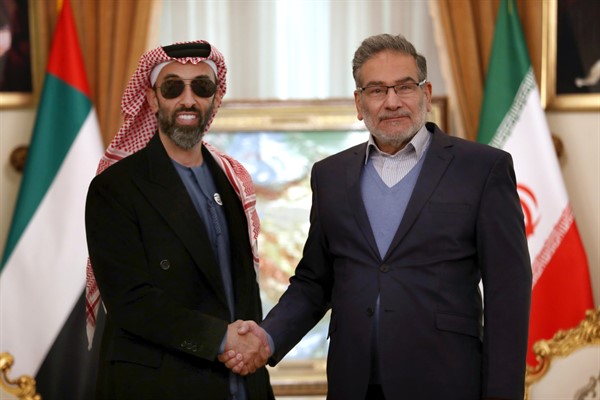High-level diplomacy has intensified among competing Middle East regional powers, a flurry of bilateral talks that increasingly suggests what a “Plan B” would look like if, as seems likely, the U.S. and Iran fail to revive the deal that briefly constrained Tehran’s nuclear program.
The pace of contacts and meetings between the region’s prime movers has stepped up a notch in recent weeks, in a tangible sign that governments in the Middle East are responding to what they see as a clear downsizing of Washington’s role in the region.
The most visible example of this adjustment was a meeting that took place in Tehran this week between the top security officials of Iran and the United Arab Emirates. Sheikh Tahnoon bin Zayed Al Nahyan, the UAE’s national security adviser, met with Ali Shamkhani, the head of Iran’s Supreme National Security Council, as well as with Iranian President Ebrahim Raisi.

